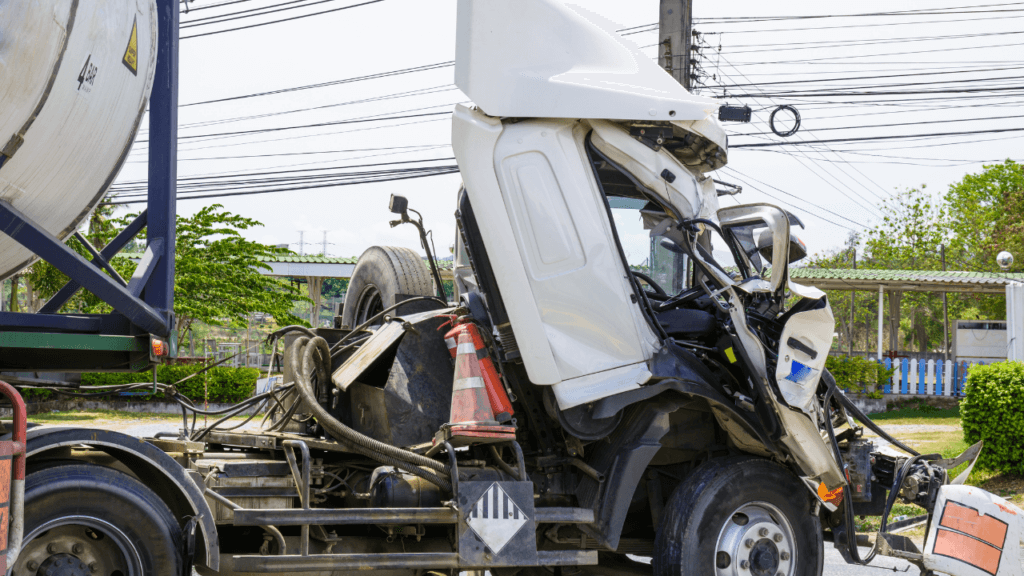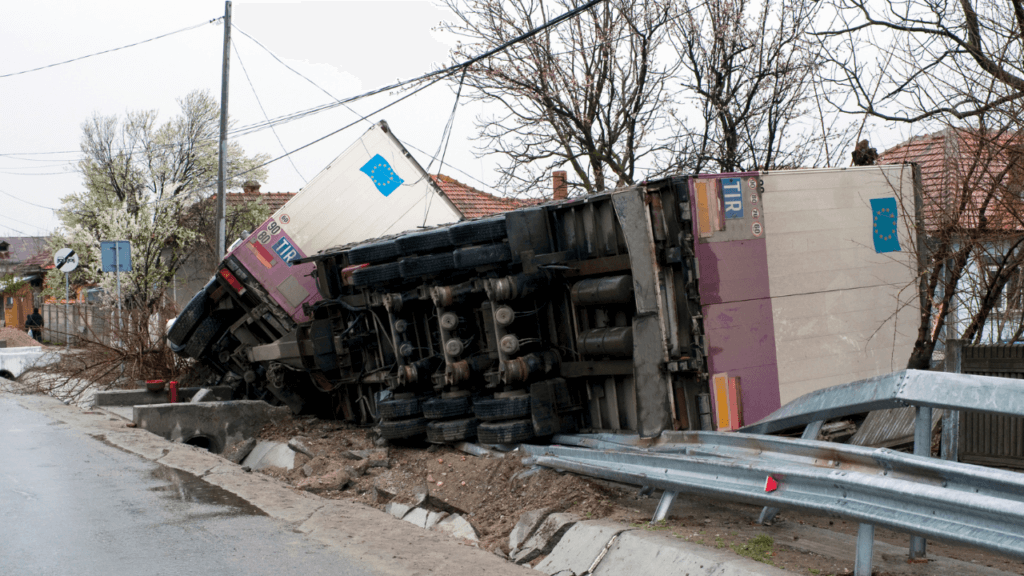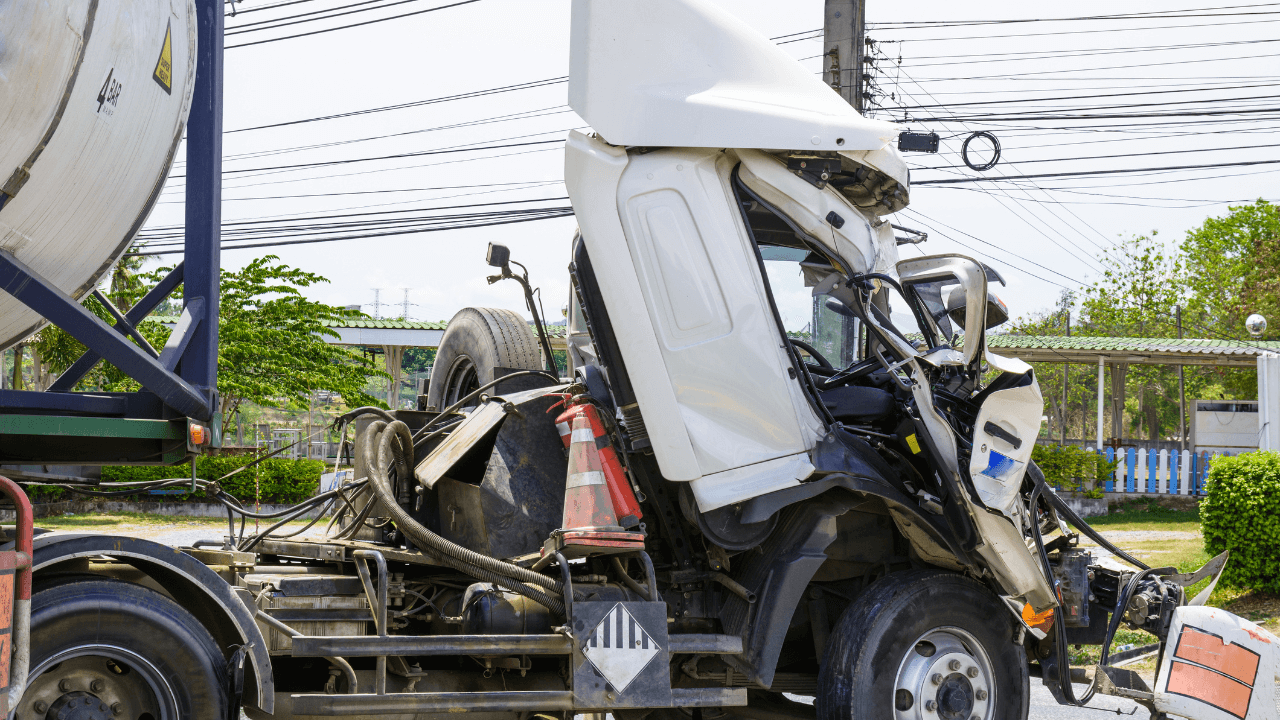
With accidents come hospital bills, medical expenses, time off of work, and pain and suffering. This scenario is even likelier if a person was involved in a crash with a truck.
One of the first questions that a person may have concerns how much they might be compensated for a truck accident lawsuit. While it is difficult to state a precise number due to the range of cases that arise, truck accidents usually settle for more money than car accidents. This is because truck companies carry higher insurance coverage than car owners. The compensation a person may get depends heavily on the nature of the injury, including how serious it is, the impact on a person’s life, and last but not least, the strength of the evidence presented and the attorney’s skill in representing their client’s interests.
If you or someone you know has had the misfortune to be involved in a truck accident, it is important to contact an attorney with expertise in these lawsuits as soon as possible to see if you may be entitled to receive compensation.
Minimum Liability Insurance for Trucks
There are minimum liability insurance requirements that are set by the Federal Motor Carrier Safety Administration (FMCSA). The insurance amounts vary by the level of risk posed by the carrier. A truck under 10,0001 pounds that is transporting hazardous substances will have the most expensive insurance, while a similar truck carrying non-hazardous freight will cost significantly less. The higher the risk identified with the truck and the type of freight it is transporting, the higher the insurance amounts will be. The FMCSA sets the following insurance minimums:
- $300,000 for non-hazardous freight moved in carriers not meeting the definition of a large truck (a carrier under 10,000 pounds)
- $750,000 for non-hazardous freight moved by large trucks (carriers over 10,001 pounds)
- $1,000,000 – $5,000,000 for hazardous substances moved by large trucks
- $5,000,000 for hazardous substances moved by carriers under 10,001 pounds
It is also not uncommon for trucking companies to purchase insurance coverage that exceeds the minimum that is required by law. Higher coverage protects them from liability in the event of a deadly crash that involves one of their drivers. These insurance amounts far exceed car insurance minimums. While insurance coverage certainly plays a major role in injured parties being able to recover higher amounts in lawsuits, it is also important to consider that trucking companies are businesses that can shoulder more out-of-pocket costs than a driver responsible for a car accident. This is also why truck accidents tend to settle for more money than car accidents.
Types of Truck Accidents
Due to the size, weight, and cargo of trucks, their accidents can be of a more unique variety than regular car accidents. While the head-on, rear-end, and side-swipe accidents certainly do happen, override, underride, squeeze play, rollover, and jackknifes are all unique types of accidents that can also occur. All have the potential to cause serious injury to the person and the vehicle on the receiving end.
- Override occurs when a truck hits a car from the rear end with so much force that it runs over the car.
- Underride occurs when a car slides under the truck, which can shear off the roof of the car.
- Squeeze play happens when a car gets trapped between the truck and the curb when the truck is making a wide turn. This can force the car under the truck.
- A rollover can occur when a truck collides with an obstacle on a highway and rolls over, leaving debris in its path which could be damaging to any cars in its vicinity.
- Jackknife accidents occur when a trailer swings to the side at a 90-degree angle from the truck cab, potentially blocking all lanes of traffic and posing significant danger to the cars behind the truck who are unable to stop in time.
What Is Recoverable?
People involved in truck accident cases can sue for economic, non-economic, and punitive damages. If a person has died after being involved in a truck accident, their family members can also bring a wrongful death claim. Examples of what kinds of claims can be brought under each type of damages include the following:
Economic Damages
- Medical expenses can include ambulance fees, cost of medical treatment in the hospital, at-home nurse’s visits, medication, other medical supplies, and home alterations/renovations needed due to the injury
- Lost wages, including missed time off of work while treating the injury
- Lost earning capacity that the injured person has incurred as a result of no longer being able to work due to the injury, or having to work fewer hours and therefore receiving less income
Non-Economic Damages
- Conscious pain and suffering that the injury brought onto the person, which can include mental anguish
- Serious life-altering injuries, such as permanent disfigurement, lifelong chronic pain, and major changes in lifestyle can net significant amounts
- Loss of consortium, which can be claimed by the spouse for damages to the marriage, such as affection and sexual relations
Wrongful Death Action
- Can be brought by the representative of the estate, typically the spouse or children of the deceased
- Damages can only be recovered by those who have suffered a financial loss, such as a surviving spouse who has lost some or all of their household income
- This can include funeral expenses and medical expenses that were incurred by the deceased before death
Punitive Damages
- Awarded in the rare case where there has been a reckless disregard for the rights of others and is meant to punish the harming party
- In the event of a fatal injury, the representative of the estate can still claim punitive damages where the deceased would have been entitled to them
No-Fault Insurance in New Jersey
Insurance coverage will play an important role in pursuing a truck accident lawsuit.
New Jersey is one of a handful of states with a no-fault auto insurance system. This means that regardless of who caused the accident, your insurance company will pay for your medical bills, up to your policy’s limit (a/k/a PIP limit). If your losses exceed the PIP limit, then you can pursue compensation from the driver who’s at fault. The PIP limit depends on which of the two general insurance policies you own: standard or basic.
Basic Policy
- $15,000 PIP limit
- Can sue for economic damages where expenses exceed $15,000
Standard Policy
- Most drivers in New Jersey will choose this policy, where the PIP limit falls between $15,000 and $250,000
- You can sue for economic damages if they exceed your PIP limit.
Unlike with car accidents, in a truck accident you can sue the at-fault truck driver for non-economic damages, such as pain and suffering, even if you did not suffer serious harm. This is true for both the basic and standard auto insurance policies.
Modified Comparative Negligence
When apportioning damages, New Jersey uses modified comparative negligence.
This is used by both insurance companies as well as juries in a trial to determine your level of fault as compared to the other party. First, your level of fault reduces the amount of damages you can recover. For example, if the injured party is deemed to be 20% at fault, and the other party 80%, then out of a $100,000 award, the injured party can only collect the 80% (or $80,000). What makes the modified comparative negligence rule unique is that if you are deemed to be 51% negligent (or more), then you cannot recover any damages at all. This highlights the importance of having an attorney who will present your case as effectively as possible to ensure that you get compensated.

Case Law Analysis
According to recent data from the National Highway Traffic Safety Administration (NHTSA), an estimated 523,796 large trucks were involved in police-reported traffic crashes nationwide in 2021. Nearly one thousand (974) of those crashes were in New Jersey. The following cases illustrate past compensation amounts awarded or settled for in the state.
Why You Need an Attorney
Truck accidents have the potential to be more complex than car accident cases. This is because there could be a lot more responsible parties than just the driver. The trucking company could be at fault for negligent maintenance of the truck, or negligently hiring inexperienced drivers. The truck manufacturer could be at fault for making a truck that had a faulty component that led to an accident. These types of situations come up from time to time, and require extensive investigation to determine everyone who could be liable for damages. This highlights the importance of retaining an attorney who has experience in these types of accidents.
Personal injury cases, like truck accidents, typically work on a contingency basis. What this means is that from the consultation through the duration of the case, the attorney does not charge fees. They will come out of the settlement or jury verdict as a percent of the overall sum.
The way to get the lawsuit started is to first consult with an attorney to determine if you have a viable case. If the attorney decides to proceed, they will file a complaint against all of the parties deemed responsible for the injury. This will begin a legal process that may culminate in a trial. Alternatively, parties could agree to an out-of-court settlement that results in payment to the injured party. Many cases will be settled through negotiations, though some inevitably reach the courtroom. Please see our comprehensive article that further explains the many aspects of truck accidents in New Jersey.
At Rosenblum Law, we have years of experience dealing with truck accident lawsuits. If you have a claim, we’ll guide you through the process and fight on your behalf for maximum compensation. For a free consultation, call us today at 888-235-9021 or contact us through our website.
FAQs
The National Highway Traffic Administration defines a large truck as any medium or heavy truck, excluding mobile homes, that weighs more than 10,000 pounds. They reclassified this designation in 2016.
Four main categories were identified, listed below in descending order of frequency:
· Decision includes the driver speeding recklessly and following vehicles too closely
· Recognition includes the driver being distracted or inattentive
· Non-performance includes the driver falling asleep, being disabled by a heart attack, or being similarly impaired
· Performance includes the driver panicking or exercising poor directional control behind the steering wheel
In descending order, the top 10 factors coded for large trucks and their drivers were:
· Brake problems
· Traffic flow interruption (congestion, previous crash)
· Prescription drug use
· Speeding in hazardous conditions
· Unfamiliarity with roadway
· Roadway problems
· Required to stop before a crash (traffic control device, crosswalk)
· Over-the-counter drug use
· Inadequate surveillance of road conditions
· Fatigue
The overwhelming majority of fatalities happen to people on the receiving end of the truck accident. This is not surprising given the size and weight of trucks versus most other vehicles they share the road with. Recent data shows that of the fatalities in 2021:
· 72%(4,149) were occupants of other vehicles
· 17% (1,008) were occupants of large trucks
· 11% (631) were nonoccupants, such as pedestrians
In New Jersey, the statute of limitations for bringing a personal injury lawsuit is two years after the injury has taken place. For this reason, it is best to consult an attorney as soon as possible to get the lawsuit underway in a timely manner.










 888-815-3649
888-815-3649
